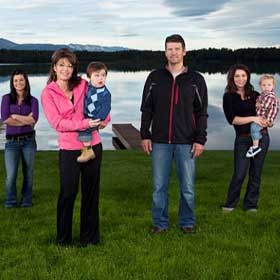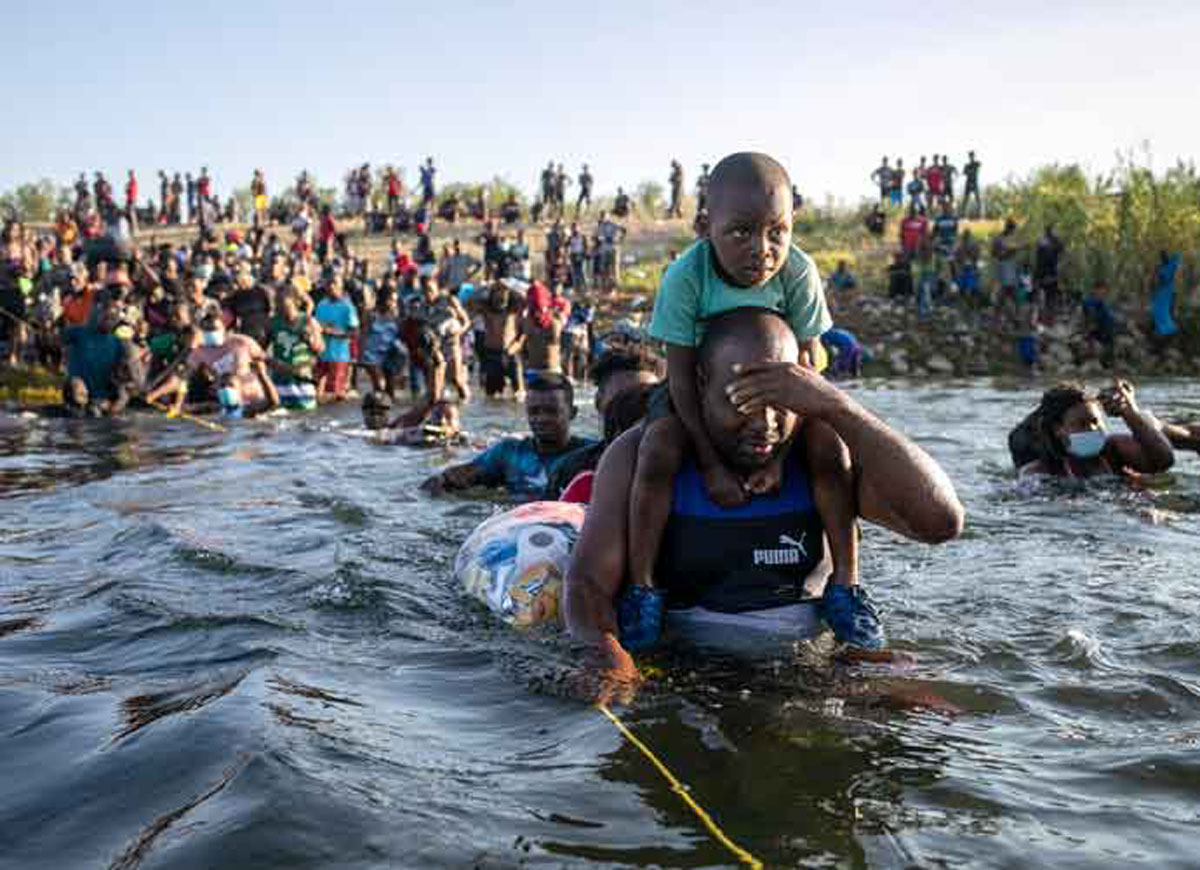Sarah Palin's Alaska

2/5
That former governor of Alaska Sarah Palin retired from public service to become a B-level reality television star will perhaps go down in history as one of the greatest sacrifices in American political history. It's probable that more people in this country hoped she would win the Republican nomination in 2012 than actually hoped she'd win the vice presidency, given her talent for systematically derailing presidential campaigns in some spectacularly comical way. Yet Palin was, in the first few days of her selection by John McCain as a running mate, widely regarded as something of a political force to be reckoned with. And what solidified, for a few hours, her status as a linchpin in the ill-fated campaign was her all-American, Soccer-mom-next door appeal: she was a rifle-wielding former Miss Alaska with a severely dysfunctional family and a shady political career, whose husband not only physically resembled a Confederate soldier but held vague ties to an Alaskan separatist organization; she was a standard bearer of loyalty to one's country, respect for one's daughter's free will and humanity and responsible and ethical comportment in a public office, with the everywoman charm of a former beauty queen: alternately, gently grandmothering the American public and viciously spouting conservative political invective like some kind of kinky Republican dominatrix.
Her retirement will be seen as a sacrifice not because she was in any way useful to the state government of Alaska, but because, had she maintained a stronger connection to the world of politics, then she would still be entertaining people to this very day, albeit in a shameful and embarrassing fashion. But somehow, since her resignation last summer, she has been "let in on the joke"… sort of. She is now aware that there exists among the viewing public some kind of ironic, in many cases prurient, interest in her everyday life, but she seems to have deemed it wise to exploit, for the purposes of her documentary television debut, her reputation as a rustic adventurer. What's worse, by allowing herself to be subsumed by the ranks of reality television stars, she has denied reality one of its most memorable buffoons: this strategy of self-exploitation almost guarantees that she will disappear off of the face of the earth in matter of years.
Sarah Palin's Alaska is in many ways a series-length elaboration upon that absurd fantasy carefully constructed by Republican strategists for the 2008 presidential campaign, of Sarah Palin being some sort of average working mother with an active, adventurous lifestyle. Testifying to this propagandistic tendency of the program is Palin's own delivery, her "performance" if you will: she is capable of neither the boring affectless demeanor that characterizes the best reality television subjects, nor the cheesy, hambone "I'm going to be on the television"-ish acting of the worst. She seems only capable of an uncomfortable, deer-in-the-headlights alien bearing. And for a professional speaker, her relationship to the camera is one of a convicted criminal interviewed against her will.
Though the life an average American family would be thought to abound with them, nearly every scene of banal domestic minutia depicted in Sarah Palin's Alaska seems as though it had to be scripted and staged. After all, the life of a political figure and her family is usually bereft of these sorts of moments, and is a carefully organized and timed, strictly and stultifyingly regimented thing. Every member of such a family plays a part, performs some strategic function. As despicable as it may seem, even Palin's developmentally challenged son, Trig, plays the important role of typifying Palin's resillience in the face of personal tragedy and undying commitment to her pro-life philosophy. Every participant has either been designed with a particular utility in mind or has been "adapted" to one: much like characters in a fictional television series. In many ways, a reality television series documenting a living, breathing fictional family ceases to be documentary. This is closer to a filmed performance of a community theatre troupe acting out the nonexistent everyday life of a quasi-political figure.
Since Sarah Palin isn't really an adventurer, her excursions into nature are limited to those of a tourist: one segment depicts Palin and her family watching, from a safe distance, bears hunt for salmon in Big River Lake. It is at moments like these that the program turns from a political advertisement into a video travel brochure: virtually any visitor to Alaska can watch this bear hunt for these fish. So the only attraction of such a segment is the thrill of watching Sarah Palin and her family experience a local tourist attraction, which is about as exciting as watching me watch this program. I don't think the producers of this show are catering to the right demographic: Palin in an important job with an inordinate number of responsibilities is comic gold; Palin watching a bear hunt, but in no danger of being mauled by it, is less than nothing. In their desperation to make this segment interesting, the producers show a brief scene of what is obviously two bears playfighting and allow Palin to state that it was an actual fight waged in defense of one of its cubs. As Sarah Palin the Naturalist remarks, on behalf of the mother bear: "No one's going to mess with the future of the species." Following this, on a related note, is an even more boring segment devoted to Palin's relationship with her boy-crazy teenage daughter, Willow, whom she describes, in a classic Palin malapropism, as more interested in "socialization" than anything else.
RELATED ARTICLES
Get the most-revealing celebrity conversations with the uInterview podcast!







Leave a comment